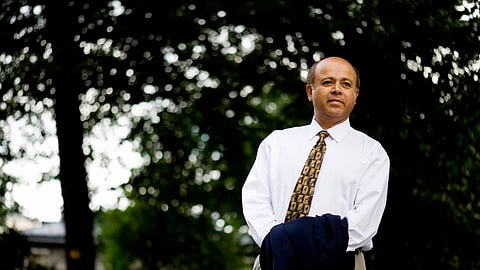Abraham Verghese’s path as a different kind of diaspora writer
IN ABRAHAM VERGHESE'S second and latest novel, The Covenant of Water, a twelve-year-old girl is married off to a forty-year-old man. This is in the Travancore of the 1900s, where children as young as nine enter matrimony, but the crucial commentary on the situation, the elephant in the room, comes from an expected source – the widowed groom at the altar, who hasn’t yet seen his new bride. When he does, he is appalled. “But this is just a child,” he says in bewilderment before storming out of the church. His fleeting tantrum doesn’t stop the marriage, just as the book doesn’t dwell on this, because with its tale that spins faith and history together with medicine, The Covenant of Water is interested in exploring a simpler theme: “in their revealing, as in their keeping, secrets can tear a family apart.”
Verghese’s two novels are often preoccupied with the emotional quagmires human lives are thrown into when they’re overshadowed by family intrigues. Perhaps the predilection to family history holds him in good stead, since Verghese’s work, both nonfiction and fiction, commands near-unanimous acclaim, and his books have tended to become instant bestsellers. His 2009 novel, Cutting for Stone, spent years on bestseller lists and has been translated into over twenty languages. The Covenant of Water was hailed as the biggest event in publishing in 2023 from the United States to India. In all his works, Verghese, a physician as well as an author, is firstly a medical practitioner, who uses literary devices to probe and illuminate the solvable mysteries of the human condition.

